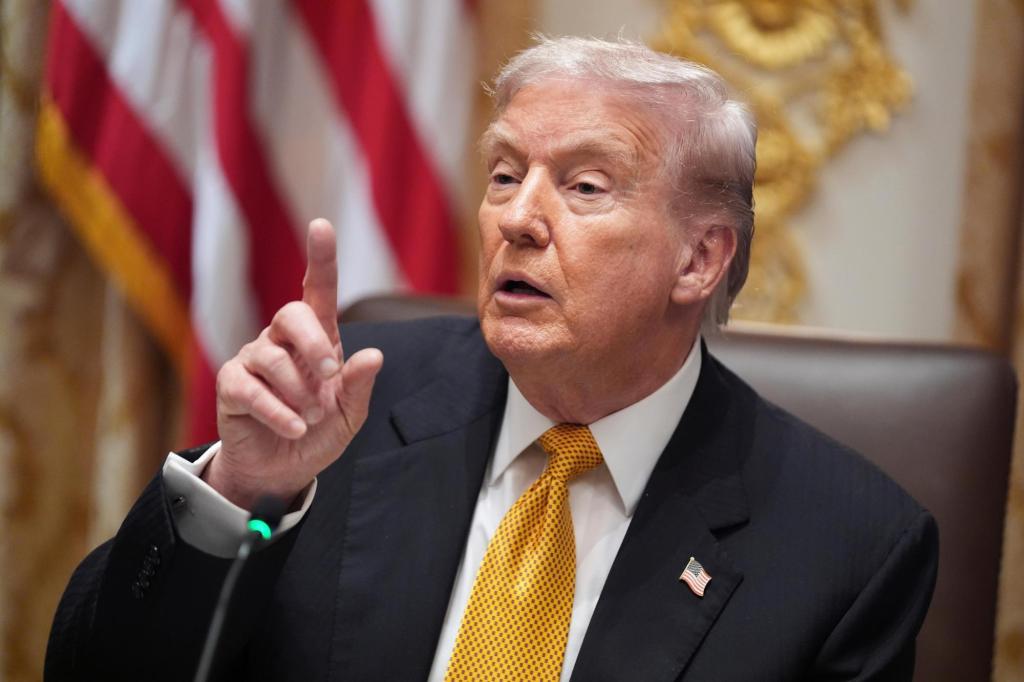
Once upon a time, a real estate developer named Donald Trump understood the folly of the war on drugs.
“We’re losing badly the war on drugs,” he said at a luncheon held by the Miami Herald in April 1990. “You have to legalize drugs to win that war. You have to take the profit away from these drug czars.”
The Associated Press further noted, “He blamed the country’s current drug problems on politicians who ‘don’t have any guts.’”
Trump arrived at this provocative conclusion during the violent and destructive crack cocaine epidemic of the 1980s and early 1990s.
He certainly wasn’t alone in this view.
In 1991, the great economist Milton Friedman explained in an interview with Randy Paige that what America was experiencing was essentially the same as what happened during America’s experiment with alcohol prohibition in the 1920s and 1930s.
From the surge in organized crime and all the chaos that brings to the problem of drug-related deaths. “The same thing happened under prohibition of alcohol as is happening now,” explained Friedman. “Under prohibition of alcohol, deaths from alcohol poisoning, from poisoning by things that were mixed in with the illegal bootleg alcohol, went up sharply. Similarly, under drug prohibition, deaths from overdose, from adulterations, from adulterated substances have gone up.”
In other words, America got all the negatives of alcohol abuse plus gang violence, corruption and poisonings that wouldn’t have otherwise happened. In time, Americans returned to their senses and ditched prohibition of alcohol.
Friedman applied these lessons the same way Trump did, arguing for drug legalization as a means of dismantling the black market and reducing the tangible harms of prohibition.
After all, it’s not like decades of fighting the drug war have been successful. According to the Cato Institute, the United States has spent $1 trillion waging the global war on drugs since the 1970s. This has entailed the arrests of millions of Americans, of international interdiction efforts and all manner of violations of American civil liberties. How’s that going?
Well, in the last two decades we have seen a surge in drug-related deaths amid an opioid crisis driven by synthetic opioids like fentanyl. When you have a policy of prohibition that has been raging for decades and has entailed the expending of a trillion dollars and things have somehow gotten worse, you should probably reassess the fundamental policy because that seems like an obvious sign of failure.
If President Trump had any guts, he would be channeling the Trump of 1990 and pushing for a complete overhaul of American drug policy prioritizing treatment and reducing the harms of drug abuse. Instead, he is going all-in on an illegal policy of executing people who happen to be on boats in the Caribbean and declaring that he’s saving tens of thousands of lives each time.
“Every boat that we knock out we save 25,000 American lives so every time you see a boat and you feel badly you say, ‘Wow, that’s rough.’ It is rough, but if you lose three people and save 25,000 people,” he said in an Oct. 15 press conference.This is, needless to say, some fantasy math on the part of the president. Perhaps he needs to believe he’s some great utilitarian to rationalize killing people without due process, but it’s nonsense.
There’s precisely zero evidence of these being drug boats and even if they were we have zero evidence of what they had or where they were headed.
If it’s fentanyl Trump is worried about, from fiscal years 2019 through June 2024, American citizens made up 81.2% of those caught smuggling it at southern ports of entry, according to the American Immigration Council.
So, again: “We’re losing badly the war on drugs. You have to legalize drugs to win that war. You have to take the profit away from these drug czars.” It’s a shame our prohibition-crazed politicians “don’t have any guts.”
Sal Rodriguez can be reached at salrodriguez@scng.com



